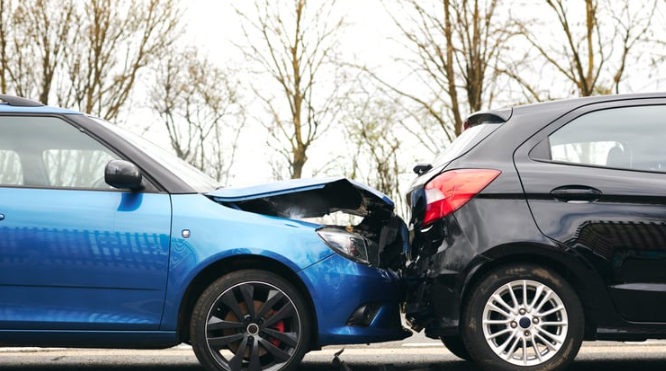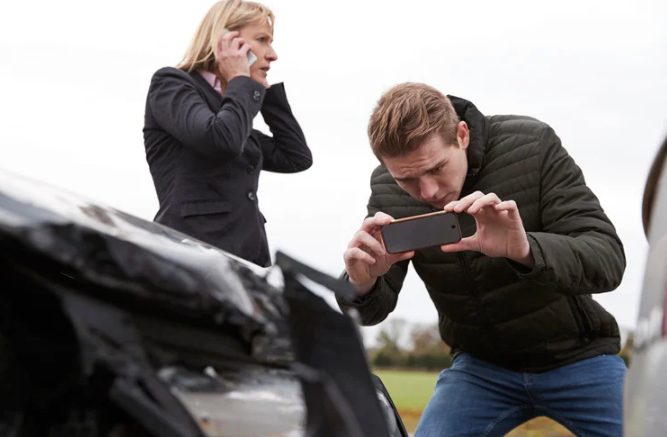
The familiar hum of traffic on the I-285 perimeter, the bustling energy of Peachtree Street, and the steady flow of vehicles down I-75 and I-85 are the daily rhythms of life in Atlanta. For all its vibrancy, however, this constant motion carries inherent risks.
The city of Atlanta witnesses an average of 30,000 vehicle accidents each year, a staggering figure that translates to over three crashes every single hour. Behind each statistic is a story of disruption, injury, and sudden uncertainty. A car accident can shatter your sense of security and leave you with a cascade of questions about your health, your finances, and your future.
In the disorienting moments following a collision, it is difficult to know what to do first. The path to recovery can seem labyrinthine, paved with complex legal procedures, daunting insurance negotiations, and the physical and emotional toll of your injuries.
This guide is intended to serve as a clear and comprehensive roadmap for individuals who have been injured in an automobile accident in Georgia. Understanding your rights and the legal framework that governs these incidents is the first, most crucial step toward protecting yourself and securing the justice you deserve.
While the journey may be challenging, you do not have to navigate it alone. With proper guidance, you can move forward with confidence and focus on what truly matters: your recovery.

What you do in the immediate minutes and hours after a car wreck can have a significant impact on both your well-being and the viability of any subsequent legal claim. Adrenaline often runs high, potentially masking the severity of injuries. It is imperative to act with a clear and methodical approach.
Some serious conditions, such as internal bleeding or certain types of brain and soft tissue injuries, may not present symptoms immediately. Seeking prompt medical care not only ensures you receive the treatment you need but also creates a crucial medical record that links your injuries directly to the accident, a vital piece of evidence for any insurance claim or lawsuit.
Turn on your hazard lights to alert other drivers. Regardless of the apparent severity of the crash, you should always report the incident to the police. In Georgia, you are required by law to report any accident that results in injury, death, or property damage of $500 or more.
An officer will respond to the scene, conduct a preliminary investigation, and create an official police report. This report is an indispensable document, as it will contain the officer’s observations, contact and insurance information for all involved parties, witness statements, and any citations issued.
Capture the damage to all vehicles involved, their license plates, skid marks on the road, traffic signals, road conditions, and any visible injuries you may have sustained.
It is also wise to exchange contact and insurance information directly with the other driver. If there are any witnesses, politely ask for their names and contact information; their impartial testimony can be invaluable later.
Georgia operates under an “at-fault” system, also known as a tort liability system, for car accidents. This legal principle is the bedrock of your personal injury claim. In simple terms, it means that the person who was negligent and caused the accident is financially responsible for the damages that result.
Unlike “no-fault” states, where your own insurance covers your initial expenses, in Georgia, the burden of compensation falls squarely on the at-fault party and their insurance provider.
This system determines fault a paramount issue. It is not merely a matter of one driver’s word against another; it requires a thorough investigation and the methodical presentation of evidence to prove that another party’s negligence led to your injuries.
Life and accidents are rarely black and white. It is not uncommon for a scenario where more than one party shares a degree of responsibility for a collision. For instance, one driver may have made an improper lane change while the other was exceeding the speed limit. Georgia law accounts for these situations through a principle known as “modified comparative negligence.”
Under this rule, codified in O.C.G.A. § 51-12-33, you can still recover damages even if you were partially at fault for the accident, but only if your percentage of fault is determined to be less than 50%.
If you are found to be 49% or less at fault, your total compensation will be reduced by your assigned percentage of fault. For example, if you are awarded $100,000 in damages but are found to be 20% at fault, your recovery will be reduced by 20%, leaving you with $80,000.
However, if a court or jury finds you to be 50% or more at fault, you are barred from recovering any compensation at all. This “50% bar rule” highlights the critical importance of building a strong case and skillfully demonstrating the other party’s primary liability. Navigating these complex fault allocations is a primary reason why seeking guidance from a seasoned car crash lawyer in Atlanta, GA, is so vital.
To successfully recover compensation, you and your legal representative must prove that the at-fault party was negligent. In the eyes of the law, negligence is not just simple carelessness; it is a legal concept with four distinct elements that must be established.
Proving these four elements requires more than just your side of the story. It requires a strategic collection of evidence, including police reports, witness testimony, accident reconstruction analysis, medical records, and expert opinions. An experienced legal professional knows how to gather, preserve, and present this evidence effectively to build a compelling case.
The dense urban environment and major interstate arteries that cut through Atlanta create a unique set of traffic challenges. Statistics from the Georgia Governor’s Office of Highway Safety and the Georgia Department of Transportation shed light on the most frequent causes of crashes in the region.
After being injured by a negligent driver, you have the right to seek compensation for the full scope of your losses. In Georgia, these damages are generally categorized into three types: economic, non-economic, and, in some rare cases, punitive.
Economic Damages: These are the tangible, calculable financial losses you have suffered as a result of the accident. They are meant to reimburse you for out-of-pocket expenses and include:
Non-Economic Damages: These damages are more subjective and compensate you for the intangible, personal losses that have no exact price tag but are just as real and devastating. These often constitute the largest part of a settlement and include:
Calculating the appropriate value for non-economic damages is complex and is a key area where the experience of a skilled personal injury lawyer becomes invaluable.
Punitive Damages: In a small minority of cases where the defendant’s conduct was particularly egregious, demonstrating willful misconduct, malice, fraud, or a conscious indifference to the consequences, a jury may award punitive damages. As outlined in O.C.G.A. § 51-12-5.1, these damages are not intended to compensate the victim but rather to punish the wrongdoer and deter similar conduct in the future. Cases involving a drunk driver, for example, may warrant a claim for punitive damages.
Following an accident, one of the first calls you receive will likely be from the at-fault driver’s insurance adjuster. It is crucial to remember that insurance companies are for-profit businesses.
The adjuster’s primary role is to protect the company’s bottom line by minimizing or denying your claim. They are trained negotiators and may employ various tactics to achieve this goal.
Be cautious when speaking with an adjuster. Avoid giving a recorded statement without first consulting an attorney, as your words can be twisted and used against you later. Do not sign any documents or accept a quick settlement offer.
These initial offers are almost always far less than the true value of your claim and are made in the hope that you will accept before understanding the full extent of your injuries and future needs.
Hiring an experienced lawyer levels the playing field. Your attorney will handle all communications with the insurance company, shielding you from pressure tactics. They will conduct an independent investigation, accurately calculate the full value of your claim, and engage in sophisticated negotiations to secure a fair settlement. If the insurance company refuses to make a fair offer, your lawyer will be prepared to take your case to court to fight for the compensation you are owed.
It is essential for victims to understand that their right to file a lawsuit is not indefinite. Georgia imposes a strict deadline, known as the statute of limitations, for filing personal injury claims. For most car accident cases, you have two years from the date of the accident to file a lawsuit for personal injuries. For claims involving only property damage, the deadline is typically four years.
If you fail to file a lawsuit within this two-year window, your claim will almost certainly be dismissed by the court, and you will lose your right to recover any compensation forever.
While some very narrow exceptions exist, such as for a minor who was injured, where the clock may be paused until they turn 18, you should never assume an exception applies to your case. This two-year deadline makes it imperative to contact a legal professional as soon as possible after an accident to ensure your rights are protected.
To make sure you get everything that you need and deserve for your situation, it’s important to work with an experienced accident lawyer.
At T. Madden & Associates, P.C., we have years of experience in helping the people of Atlanta recover the compensation they deserve after being injured.
Contact us today: we serve Atlanta and most major cities and counties of Georgia.